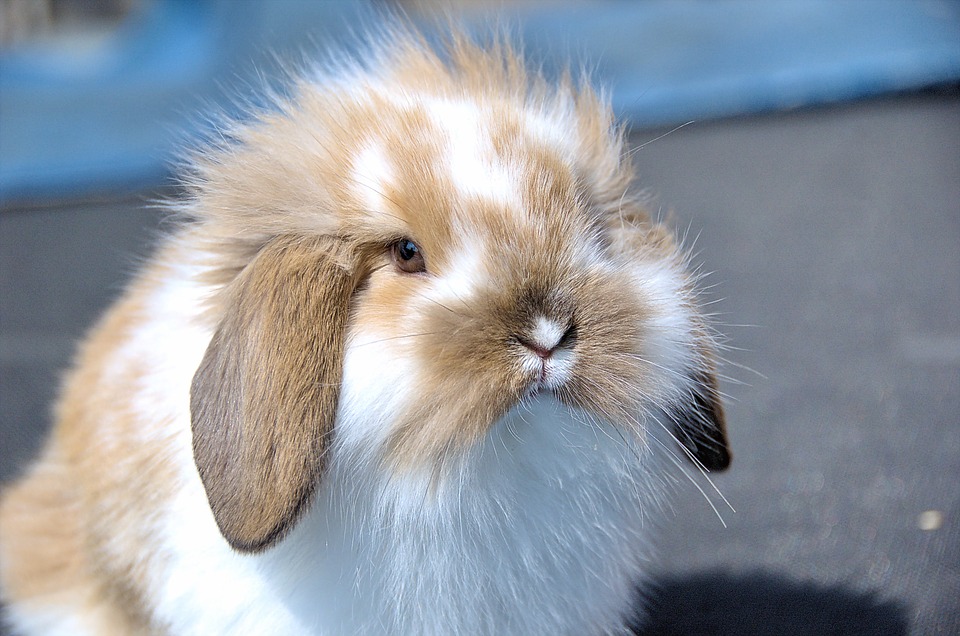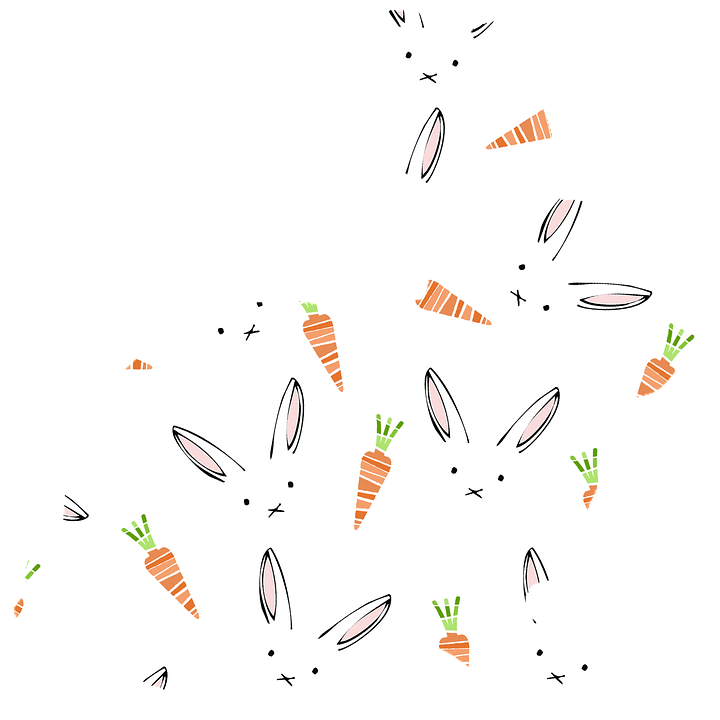This article delves into the intriguing world of newborn rabbits, exploring the process of eye opening and the significant developmental changes that accompany it. We'll examine the reasons behind this crucial milestone, the typical timeframe for eye opening, and the diverse factors that can influence it. We'll also delve into the fascinating behaviours and needs of young rabbits after their eyes open, providing insights into their development and care. Finally, we'll address common questions about newborn rabbit eye opening in a dedicated FAQ section.
Part 1: The Mystery of Eye Opening Unveiled

1.1 The Crucial Role of Vision
Sensory Exploration: The opening of a rabbit's eyes marks a significant step in their sensory development. They can now explore their surroundings with visual cues, adding another dimension to their understanding of the world.
Visual Learning: Vision plays a critical role in learning and development. Baby rabbits start to recognize their littermates and their mother, establishing vital social bonds.
Environmental Awareness: The ability to see enhances a rabbit's awareness of their environment. They can now identify potential threats, like predators, and respond accordingly.
1.2 The Typical Timeframe: A Window into Development
Day 5-14: The Eye Opening Period: Most rabbit kits will open their eyes sometime between day 5 and day 14 after birth.
Breed Variation: While this is a general guideline, certain rabbit breeds, like the Dutch and Netherland Dwarf, often open their eyes slightly earlier than others.
Individuality: Remember, every rabbit is an individual. Some kits might open their eyes as early as day 4, while others might take up to day 16.
1.3 Factors Influencing the Timing: A Complex Equation
Genetics: The breed of the rabbit is a significant factor. Certain breeds have a genetic predisposition for earlier eye opening.
Litter Size: Larger litters can sometimes lead to a slightly delayed eye opening due to increased competition for resources and attention from the mother.
Environmental Temperature: Maintaining a warm, stable environment is crucial for healthy development, including eye opening. Fluctuations in temperature can potentially delay the process.
Nutrition: Adequate nutrition for the mother rabbit is vital for producing healthy milk, which supports the overall growth and development of her kits.
Part 2: The Transformation: From Blind to Seeing

2.1 The Emerging World of Sensory Perception
Hearing: Baby rabbits are born with their ears open and can hear from birth. However, their auditory perception continues to develop in the weeks after eye opening.
Smell: Their sense of smell is highly developed from birth, playing a crucial role in navigating and exploring their surroundings.
Touch: Touch is fundamental for bonding and communication within the litter. Baby rabbits explore their environment and learn through touch.
2.2 The Dawn of New Behaviours
Increased Activity: After their eyes open, young rabbits become more active and exploratory. They start venturing further from the nest and interact more with their littermates.
Playful Exploration: Playful behaviour emerges as baby rabbits learn to hop, jump, and chase each other. This playful interaction helps refine their motor skills and social skills.
Social Hierarchy Formation: Within the litter, a social hierarchy starts to form, with certain kits taking on more dominant roles.
2.3 The Transition to Solid Food: A New Chapter in Nutrition
Weaning: The process of weaning, where baby rabbits gradually transition from their mother's milk to solid food, typically begins around 3-4 weeks after birth.
First Solid Foods: At first, baby rabbits might nibble on their mother's droppings, which provide them with essential bacteria for their digestive system.
Expanding Their Diet: Gradually, they start to explore and eat a variety of fresh vegetables, hay, and pellets.
Part 3: The Art of Caring for Newborn Rabbits
3.1 The Importance of a Warm and Safe Haven
Temperature Control: Maintaining a stable temperature of 70-80 degrees Fahrenheit is crucial for newborn rabbits. Fluctuations in temperature can be detrimental to their health.
Nest Box Essentials: Providing a warm, enclosed nest box with soft bedding materials helps regulate temperature and keep the kits safe.
3.2 Nourishing Their Growth: Milk and Beyond
Mother's Milk: The Perfect Start: The mother rabbit's milk provides all the essential nutrients for the first few weeks of life.
Supplementation: When Necessary: In some cases, supplemental feeding might be necessary, especially if the litter is large or the mother rabbit is not producing enough milk.
3.3 Maintaining a Clean and Healthy Environment
Hygiene Matters: Maintaining a clean and sanitary environment is vital to prevent infections. Regular cleaning and disinfection are essential.
Health Checks: It's essential to monitor the baby rabbits for any signs of illness, such as lethargy, loss of appetite, or diarrhoea.
Part 4: The Art of Motherhood: The Mother's Role
4.1 The Importance of Maternal Care
Nurturing the Young: The mother rabbit plays a critical role in the development of her kits. She provides warmth, protection, and nourishment.
Cleanliness and Hygiene: The mother rabbit keeps the nest clean, removing waste and grooming the kits to prevent infections.
Feeding and Bonding: She nurses her kits regularly, providing essential antibodies and nutrients for their growth.
4.2 Recognizing Signs of Trouble
Maternal Neglect: If the mother rabbit appears to be neglecting her kits, it's essential to seek veterinary advice.
Distress Signals: Watch for signs of stress or distress in the mother rabbit, such as restlessness, aggression, or excessive vocalization.
Intervention When Necessary: In some cases, it might be necessary to intervene and provide supplemental care for the kits if the mother is unable or unwilling to do so.
Part 5: Common Questions and Answers
5.1 FAQs about Eye Opening
- What if a baby rabbit doesn't open its eyes by day 14? It's best to consult with a veterinarian if a rabbit kit hasn't opened its eyes by day 14. There could be underlying health issues that need attention.
- Is it normal for baby rabbit eyes to be cloudy? A slight cloudiness is normal for a few days after eye opening, but if the cloudiness persists or worsens, it's crucial to consult a veterinarian.
- How often should I check on baby rabbits? It's best to check on baby rabbits at least once a day, especially in the first few weeks after birth.
- Can I touch baby rabbits? While it's tempting to touch baby rabbits, it's best to avoid handling them too much, especially in the first few weeks. Excessive handling can disrupt the mother rabbit and cause stress to the kits.
- What should I do if I find a baby rabbit abandoned? If you find a baby rabbit alone, it's essential to contact a local animal rescue or wildlife rehabilitation center. Avoid trying to care for it yourself, as it requires specialized care.
- How long do baby rabbits stay with their mother? Baby rabbits typically stay with their mother for around 6-8 weeks.
- What should I feed baby rabbits after they are weaned? After weaning, baby rabbits should be offered a diet consisting of fresh hay, vegetables, and rabbit pellets.
It's important to remember that every rabbit is an individual, and developmental milestones may vary slightly. By understanding the typical timeframe for eye opening and the factors that can influence it, you can provide the best possible care for your baby rabbits.
Everyone is watching
-

Do Rabbits Lay Eggs? (The Surprising Truth)
OTHER TYPES OF PETSThis article will unravel the common misconception that rabbits lay eggs, exploring the fascinating world of r...
-

What's a Group of Rabbits Called? (A Comprehensive Guide)
OTHER TYPES OF PETSThis article delves into the fascinating world of rabbits, exploring the various terms used to describe a grou...
-

Can Rabbits Eat Grapes? A Guide to Safe Rabbit Treats
OTHER TYPES OF PETSThis comprehensive guide will explore the safety and suitability of grapes for rabbits, providing detailed inf...
-

Predators That Hunt Rabbits: A Guide to Natural Enemies
OTHER TYPES OF PETSI've always been fascinated by the circle of life, that delicate dance between predator and prey. Growing up ...
-

Are Rabbits Nocturnal Animals?
OTHER TYPES OF PETSThe question of whether rabbits are nocturnal animals is a fascinating one, with a surprisingly complex answer...
